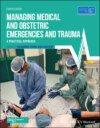Kitabı oku: «Secrets of great sex»
Illustrations midjourney
© Emma Koh, 2025
ISBN 978-5-0064-8511-2
Created with Ridero smart publishing system

introduction. WHY IS IT IMPORTANT TALKING ABOUT SEXUALITY AND SEXY OPPORTUNITIES
In a world where science is rapidly opening up new horizons in health, psychology and interpersonal relations, one topic remains surrounded by myths and stereotypes – sexuality. Despite the fact that sex life is a natural part of human existence, discussing it often causes embarrassment or even shame. But why is it so important to talk about sexuality openly and scientifically?
Why can working on your own sexuality change
your life? Sexuality as an integral part of personality. Sexuality is not just a physical aspect of our lives. lives. This is a complex phenomenon that includes biological, emotional, social and psychological aspects. It shapes our perception of ourselves, our relationships and interactions with the world. Sexual energy is more than just physical desire, it is intertwined with our self – confidence, our sense of belonging, and even creativity.
When a person ignores or suppresses their sexuality, it can lead to serious consequences: low self-esteem, tension in relationships, lack of satisfaction in life. On the other hand, when we recognize and develop our sexuality, it opens up new possibilities for us – we feel alive, strong and harmonious. Talking about sexuality is not just discussing intimate moments, it is discussing our wholeness as people.
Breaking the Stereotypes: Why Open Conversation Is Necessary
Society has created myths and taboos around the topic of sex for centuries. Tradition, culture, religion, and social norms have long dictated the «correct» way to perceive sexuality. Men were supposed to be aggressive and dominant, and women were supposed to be passive and modest. These stereotypes not only limited sexual roles, but also the opportunities for sexuality to develop in both men and women. For example, the widespread belief that men should always be ready for sexual activity creates a huge pressure, causing fears and shame in moments when this is not true. Women, on the other hand, often face condemnation for expressing open sexual desire, which suppresses their natural sexuality and leads to internal conflicts.
Stereotypes about sexuality fading with age deprive people of the right to enjoy their intimate life in adulthood. All these are examples of how myths and taboos destroy a healthy perception of sex, force us to suppress natural desires and do not give the opportunity to reveal sexual potential. It is important to talk about this in order to break down artificial barriers and give each person the opportunity to feel free and fulfilled in their sexual life.
One of the key points in openly discussing sexuality is to approach it from a scientific point of view. Sexuality is not a topic for gossip or moralizing. It is an important component of human health and well-being that deserves careful study. Modern medicine and psychology have already proven that a healthy sex life is directly related to the general condition of the body: it improves the functioning of the cardiovascular system, reduces stress levels, and maintains hormonal balance.
Moreover, understanding one’s sexuality and sexual capabilities helps people better manage their emotions and relationships. Not only the physiological aspect is important,
but also the mental component. For example, the ability to control one’s sexual impulses, be attentive to the desires of a partner and maintain an emotional connection increases satisfaction in relationships and the quality of life in general.
Modern research confirms that open and honest conversations about sexuality, as well as teaching yourself and your partner techniques and methods, help to overcome many difficulties, such as problems with erection, low
libido or lack of sexual satisfaction. This knowledge can help many couples and individuals restore harmony in the intimate sphere. Developing sexuality requires a conscious approach.
It is a process in which it is important to work not only on the body, but also on the mind. First of all, it means recognizing your sexuality, accepting it as an important and valuable part of life. It also implies a willingness to learn and develop: from physical exercises to strengthen intimate muscles to meditation techniques aimed at increasing awareness and concentration.
Physical activity plays an important role in sexual life. Simple exercises, such as strengthening the pelvic floor or improving flexibility, can significantly improve the quality of sex, prolong pleasure and increase stamina. However, working on the body is not only physical training. It is also taking care of your health: proper nutrition, sleep patterns, stress control. All these factors affect sexual performance. But working on your mental and emotional state is no less important. Often, problems in sexual life arise not because of physiological reasons, but because of internal blocks, fears or low self-esteem. The ability to accept your body, your desires and openly discuss them with your partner is the key to sexual freedom. Open and honest conversations about sexuality are not just a way to get rid of shame or break stereotypes. It is an opportunity for each person to learn to live in harmony with themselves and others. Sexuality is a powerful force that can reveal creativity, strengthen self-confidence and improve the quality of life. Working on your sexuality is a path to a fuller and more joyful life. It is not an end goal, but a process that brings pleasure and self-understanding. And most importantly, it is a path on which we can become better, understand our desires more deeply and learn to build healthier and happier relationships with others.

CHAPTER 1: UNDERSTANDING SEXUALITY
Sexuality is one of the most important and multifaceted aspects of human life. It intertwines biological, psychological, social and cultural aspects, influencing our self-perception, relationships with others and the overall quality of life. Understanding sexuality helps us to better recognize our desires, build harmonious relationships and accept ourselves as we are.
What is Sexuality Definition of Sexuality: Personal and Cultural Aspects Sexuality is the sum of the biological, emotional, social, and spiritual manifestations related to sexual desire, sexual behavior, and self-perception. It includes our thoughts, feelings, desires, beliefs, and attitudes related to sexuality. The personal aspect of sexuality reflects an individual’s experiences and feelings. It is how we perceive our sexual identity, what preferences and desires we have, and how we express our sexuality. The cultural aspect of sexuality is determined by the norms, values, and expectations of the society in which we live. Culture influences how we perceive sexuality, what behaviors are considered acceptable or unacceptable, and how we interact with others in a sexual context. For example, in some cultures, open expression of sexuality is encouraged and considered natural, while in other cultures it is restrained and may be taboo.
Evolution of Sexuality in Human History Sexuality has always been an important part of human society, but attitudes toward it have changed over the centuries:
Ancient civilizations: In ancient Greece and Rome, sexuality was more openly perceived. There were cults dedicated to the gods of fertility and love, such as Aphrodite
and Dionysus. Middle Ages: During this period, under the influence of religious teachings, sexuality was often repressed. Sexual relations were viewed primarily in the context of marriage and procreation. Renaissance: A return to interest in the human body and sensuality. Art and literature began to depict sexuality more openly. 19th—20th centuries: The advent of psychoanalysis (Sigmund Freud) and sexuality studies (Alfred Kinsey) contributed to the scientific study of this area. The sexual revolution of the 1960s led to more open discussion and acceptance of diverse forms of sexuality. Today, we continue to explore and rethink sexuality in an effort to better understand and accept the diversity of human experience.
Gender and cultural differences in perceptions of sexuality
Gender differences affect how men and women perceive and express their sexuality:
Men: They are often expected to be more proactive and active in sexual relationships. Society rewards male sexuality, but may also impose pressure to conform to certain standards. Women: Women’s sexuality has historically been repressed. They were expected to be more passive or modest. However, in modern society, these stereotypes are gradually breaking down, and women are increasingly free to express their sexuality.
Cultural differences also play a significant role:
Western cultures: Tend to discuss sexuality more openly, accepting a variety of sexual orientations and identities. Traditional societies: May have strict norms and taboos related to sexual behavior, which affects individuals’ self-esteem and expression of sexuality. Understanding these differences helps us to treat others with respect and be aware of how external factors influence our perception of ourselves.
Physiology of Sexuality
Basics of the anatomy of the genitals and their role in sexual activity Male anatomy:
Penis: An organ involved in sexual intercourse and urination. Consists of cavernous bodies that fill with blood during an erection.
Testicles: Produce sperm and the hormone testosterone.
Prostate: A gland that secretes a fluid that is part of semen.
Vagina: A muscular canal connecting the external genitalia to the uterus. Involved in sexual intercourse, childbirth, and menstruation.
Uterus: An organ where the fetus develops during pregnancy.
Ovaries: Produce eggs and the hormones estrogen and progesterone.
Clitoris: A highly sensitive organ that plays a key role in a woman’s sexual pleasure. Understanding the anatomy help you become more aware of your body and needs, and contributes to more satisfying sexual relationships.
How Hormones Affect Sexuality
Hormones are chemicals that regulate many processes in the body, including sexuality.
Testosterone: The primary male sex hormone, but also present in women. In men, it controls sex drive, sperm production, and the development of secondary sexual characteristics. In women, it affects libido and energy.
Estrogen: The primary female sex hormone. Regulates the menstrual cycle, affects mood, and sexual desire.
Progesterone: Involved in the menstrual cycle and pregnancy. Can affect mood and libido.
Oxytocin: Known as the «bondage hormone.» It is released during hugs, kisses, and orgasm, enhancing feelings of intimacy.
Hormonal balance is important for overall well-being and sexual performance. Stress, age, and illness can affect hormone levels, changing sexual desire. Different phases of sexual response (desire, arousal, orgasm) The sexual response model includes several phases:
Desire: Emotional and psychological drive for sexual activity. Can be triggered by thoughts, fantasies, hormonal changes.
Arousal: Physical reaction of the body to sexual stimuli. Increased heart rate, increased blood pressure, increased blood flow to the genitals (erection in men, vaginal lubrication in women).
Plateau: State of high sexual activity before orgasm. Muscle tension increases, sensations intensify.
Orgasm: Culmination of sexual arousal. Accompanied by intense pleasant sensations, contractions of the pelvic muscles. Resolution: Return of the body to its normal state. Feeling of relaxation, satisfaction. Understanding these phases helps you become more aware of your reactions and needs, and also helps improve the quality of your sexual life.
Psychology of sexuality
The Impact of Emotional State on Sexual Desire Emotions play a key role in sexuality:
Stress and anxiety: Can reduce libido, making it difficult to achieve arousal and orgasm.
Depression: Often accompanied by a loss of interest in sex.
Confidence and joy: Contribute to increased sexual desire and pleasure.
For example, after a hard day at work, a person may feel tired and lacking desire, whereas on vacation, in a relaxed environment, sexual desire may increase.
The Importance of Self-Esteem and Self-Confidence
Self-esteem directly affects how we perceive our sexuality:
High self-esteem: A person feels attractive, confident in their abilities, which contributes to a more open and satisfying sex life.
Low self-esteem: Doubts about one’s attractiveness
can cause shyness, fear of intimacy, and avoidance of sexual contact.
Working on increasing self-esteem is an important step towards improving sexual well-being. This may include self-acceptance, positive thinking, and taking care of your physical and mental health.
The Role of Psychological Comfort and Safety in Sexual Relationships A sense of security and trust in a relationship is the basis for a healthy sex life:
Emotional Intimacy: Allows partners to openly express their wants and needs, which increases satisfaction.
Communication: Open dialogue about preferences, boundaries, and fantasies promotes mutual understanding.
Respect: Acknowledging and accepting each other’s feelings and desires strengthens the relationship.
For example, a couple who discusses their desires and fears is likely to experience greater satisfaction in their sex life than one who avoids these topics.
Sexual Orientation and Identity
Understanding Sexual Orientation and Gender Identity Sexual orientation is an enduring emotional, romantic, and sexual attraction to people of a particular gender: Heterosexuality: Attraction to the opposite sex.
Homosexuality: Attraction to the same sex. Bisexuality: Attraction to both sexes. Pansexuality: Attraction to people regardless of their gender identity. Asexuality: Lack of sexual attraction.
Gender identity is a person’s internal sense of their gender, which may or may not match their biological sex:
Cisgender: When gender identity matches biological sex. Transgender: When gender identity does not match biological sex. Non-binary identities: When a person does not identify exclusively as male or female. Spectrum of sexual orientation: from heterosexuality to asexuality.
Sexual orientation exists on a spectrum, and people can fall at different points on the spectrum:
Kinsey scale: Developed by Alfred Kinsey, a scale from 0 (exclusively heterosexual) to 6 (exclusively homosexual), recognizing that many people experience varying degrees of attraction to both sexes.
Gray-asexual: People who rarely experience sexual attraction or experience it only in limited circumstances. Recognizing this spectrum helps us understand and accept the diversity of human experiences around sexuality.
How to Accept and Respect Your Sexual Identity
Self-Acceptance: Acknowledging your feelings and attractions without judging.
Education: Learning about sexual orientation and gender identity can help dispel myths and stereotypes.
Support: Connecting with people who share or support your identity can help you feel less alone. Seeking Professional Help: Psychologists or counselors can provide support and help you understand your feelings. For example, a person who has come to realize that they are bisexual may experience mixed feelings. Turning to a community or a professional can help them accept themselves and feel comfortable in their identity. Understanding sexuality is the path to a fuller and more harmonious life. By recognizing the biological, psychological and social aspects of sexuality, we can better understand ourselves and others, build healthy relationships, and enjoy our sex lives. It is important to remember that sexuality is unique to each person.

Chapter 2: Development of Sexuality
Self-awareness and acceptance Self-awareness is the first step to developing sexuality. People often underestimate the importance of deeply understanding their body, its reactions and characteristics. Our body is the main source of sensations, and studying it helps not only to better understand your sexuality, but also to get more pleasure in your intimate life. Sexuality is unique to each person. For example, many people need time to understand what brings them the most pleasure. Some may feel more arousal from certain touches or situations. But to find out, it is important to experiment and explore your body. This can be as simple as paying attention to your reactions at different times of the day or finding areas of the body that are especially sensitive.
Example: Aleks could not understand for a long time why she felt awkward during intimacy with her partner. Only after she began to pay attention to her own feelings did she realize that certain types of touches that seemed to be pleasant actually caused discomfort. Having understood this, she was able to explain her feelings to her partner, and their sex life became much more harmonious.
How to Feel Comfortable with Your Sexuality
Accepting your sexuality is an important step in personal growth. However, due to social and cultural stereotypes, many people may feel ashamed or awkward about their sexual desires. This internal conflict often prevents them from feeling comfortable in their intimate life.
To feel comfortable with your sexuality, it is important to realize that it is a natural and healthy part of life. The first step may be to let go of feelings of guilt or shame about your desires. This can be done by studying information about sexuality, reading books and articles that say that sexual preferences can be different and that this is normal.
Example: Hans was always embarrassed by his sexual fantasies, thinking that they were «wrong.» However, after talking with a psychologist and reading several books on sexual diversity, he realized that his fantasies were quite normal and could even make his intimate life more intense. This helped him become more self-confident and open in relationships.
Methods for increasing confidence in your sexual abilities
For many people, sexual confidence does not come right away. This can be due to physical or psychological factors, but one of the main ways to increase confidence is practice and self-development.
One method is to consciously develop communication skills with your partner. Open conversations about preferences and desires are not only a way to better understand each other, but also an opportunity to reduce anxiety. In addition, working on physical health, such as exercises to strengthen the pelvic muscles, can increase confidence in your abilities. Example: Lena has always felt insecure due to low self-esteem. She began practicing exercises
to strengthen her pelvic muscles, as well as meditations aimed at increasing awareness and concentration on the body. These simple actions helped her not only to improve her physical fitness, but also to increase her self-confidence during intimacy.
Physical Fitness and Sexuality
Physical Fitness Exercises That Affect. Physical activity has a huge impact on sexual performance. Many people do not realize that the regular exercise can significantly improve their intimate life. This is because good physical fitness improves blood circulation, which directly affects sexual arousal and stamina.
Pelvic floor exercises are among the most effective for increasing sexual activity. These muscles support the pelvic organs and help control processes associated with sexual intercourse, such as erection in men and orgasm in women.
Exercise example: Kegel exercises strengthen the pelvic floor muscles. They help improve control over orgasm in men and women, and also increase sensitivity. Example: Michael noticed that after regularly running and strength training, his sexual stamina improved. He became less tired, and his ability to control and extend the duration of the act increased significantly.
How Flexibility and Endurance Improve Sexual Performance
Flexibility is another important aspect of physical fitness that affects sexual performance. Flexibility helps to diversify positions during sex and allows partners to feel more comfortable in different situations. For example, yoga or Pilates can improve flexibility and endurance, which has a positive effect on sex life. Endurance is the body’s ability to maintain activity for a long time. The higher the endurance, the more energy is left for a full sexual act, and the more pleasure you can get. Developing endurance through cardio exercises such as swimming, running or cycling significantly improves overall fitness and increases energy levels. Example: Ariana and her partner started doing yoga together, and after a few months they noticed that their sexual life became more active and varied. Flexibility exercises have allowed them to experiment with new positions, and they now feel more confident and relaxed during intimacy.
The Impact of Nutrition and Sleep on Sexual Health
Sexual health is directly related to the overall health of the body, and nutrition plays an important role in this. Certain products can improve blood circulation and increase energy levels, which in turn helps to increase sexual desire and stamina.
Healthy foods for sexual health: Vegetables and fruits rich in antioxidants help improve blood circulation. Foods containing omega-3 fatty acids (fish, nuts) support the cardiovascular system. Dark chocolate promotes the production of endorphins, which improve mood and increase sexual desire. Sleep is no less important. Lack of sleep can negatively affect hormone levels, which will lead to a decrease in libido. Quality sleep restores strength and allows the body to function at an optimal level.
Example: Douglas, who was constantly tired, noticed that his sexual desire had significantly decreased. He began to pay attention to his diet, adding more vegetables, and improved his sleep patterns. As a result, his energy was restored, and his sex life returned to its previous level.
Harmonization of Relationships
For the full development of sexuality, it is important not only to work on yourself, but also to strengthen your relationship with your partner. Harmonious relationships create the basis for open and healthy sexual interaction.
The Role of Communication in Sexual Relationships
One of the most important aspects of a harmonious relationship is open and honest communication. The ability to talk about your desires and needs helps to better understand each other, which ultimately leads to a more fulfilling sex life. Many problems in intimate relationships arise precisely because of the lack of dialogue.
Example: The couple Mariana and Denis had long avoided discussing their sexual preferences, which led to dissatisfaction in both partners. One day they decided to talk openly and found out that each had their own fantasies that they were afraid to voice. This conversation strengthened their relationship and led to a new stage in their intimate life.
How to Discuss Sexual Preferences and Boundaries with Your Partner
One of the most important components of a successful sex life is open and honest communication between partners. However, many people avoid discussing their preferences and boundaries for fear of being misunderstood or rejected. In fact, such conversations can not only enrich your intimate life, but also make your relationship deeper and more sincere.
Why is it so important to talk about your preferences?
Each person is unique in their perception of pleasure. What one person likes may be uncomfortable or undesirable for another. Discussing preferences helps both partners understand each other better, avoid misunderstandings, and create conditions for mutual enjoyment. For example, if your partner prefers softer or, conversely, more intense touches, knowing this can significantly improve the intimate experience. Example: She and He did not discuss their intimate preferences for a long time, believing that the partner would guess about their desires. However, one day, having decided to have an honest conversation, they discovered realized that they both had their own hidden fantasies and preferences, which they had previously been embarrassed to discuss. This conversation opened up new horizons in their sex life, making the relationship more intense.
How to discuss boundaries correctly?
Talking about boundaries is as important as discussing preferences. Boundaries are something that each person sets for themselves in intimate relationships, and they need to be respected. It is important to understand in advance where your boundaries are and discuss them honestly with your partner. Such a dialogue will help to avoid awkward situations and make intimate moments more comfortable. You can start by gently asking questions: «Is there something that worries you in our relationship?», «Do you feel comfortable with what we do?» This creates space for an open conversation without pressure.
Example: She and He began to build their relationship by discussing boundaries. Each told what actions are unacceptable for them, and what they want to avoid in intimate contacts. This allowed them to create a basis of mutual understanding and trust, where both felt protected and respected.
The Importance of Trust and Respect in Intimate Relationships
Sexual intimacy is impossible without trust. When both partners know that their desires and boundaries are respected, it creates a safe space for experimentation and new experiences. Mutual trust strengthens the emotional connection and makes sex life more satisfying. Respect for your partner is not just being attentive to his desires, but also the ability to listen to his emotions and moods. Sometimes a person may experience stress or fatigue, and at such moments it is important to be attentive and patient. It is necessary to realize that intimacy is not only physical action, but also an emotional connection based on mutual respect.
Example: He and She always tried to respect each other and in moments when one of them was not in the mood for intimacy, the other showed understanding and did not insist. This strengthened their trust, helped them feel safe and not be afraid to express their feelings.
Techniques for Increasing Sexual Energy
Sexual energy is not only physical desire, but also a deep flow of life force that runs through our body and mind. Increasing sexual energy helps to improve the quality of life, develop sensuality, and deepen the connection with your partner. There are various practices that help to consciously manage this energy and direct it to improve your intimate life. Sexual energy is a powerful source of life force that can be directed and used not only to enhance sexual intimacy, but also to improve overall physical and emotional well-being. The following techniques will help you increase sexual energy, improve body sensitivity, and create a deeper connection with yourself and your partner.
1. Technique «Breathing of sexual energy»
Breathing is a key element of managing sexual energy. With the help of conscious breathing, you can increase the circulation of energy in the body and direct it to areas that require activation.
Step 1: Preparation
Find a quiet and calm place where no one will disturb you. Sit in a comfortable position with a straight back. You can sit on a chair or on the floor with your legs crossed. Relax, close your eyes and focus on your breathing.
Step 2: Breathing through the Lower Chakras
Take a deep breath in through your nose, imagining the air descending into your pelvic area (your lower abdomen, where your sexual energy resides). As you exhale, slowly release the air through your mouth, imagining the energy rising up your spine to the crown of your head. Continue breathing, focusing on the sensation of warmth and energy moving through your body.
Step 3: Consciously Directing the Energy Imagine your sexual energy moving through your body with each inhalation and exhalation. Feel it filling your entire body. As you inhale, focus on the sensations in your pelvic area, and as you exhale, direct the energy up to your heart or head.
Step 4: Finishing
After 5—10 minutes of breathing, gradually return to normal breathing. Open your eyes and feel how your energy has spread throughout your body.
2. Kegel Technique for Increasing Sexual Energy
Kegel exercises help strengthen the pelvic floor muscles, which play an important role in managing sexual energy and enhancing sexual sensations.
Step 1: Identifying the Right Muscles
To understand which muscles to exercise, try stopping the flow of urine in the middle of urination. The muscles that you tense are the pelvic floor muscles. Do not use this method during urination for regular exercises, you only need to do it once to identify the muscles.
Step 2: Kegel Exercises
Sit in a comfortable position or lie on your back. Squeeze your pelvic floor muscles (as if you were stopping urination) for 5 seconds, then relax for 5 seconds. Repeat this 10—15 times, gradually increasing the time of squeezing to 10 seconds.
Step 3: Progression
As the muscles become stronger, you can do Kegel exercises in different positions (standing, sitting, while walking). Practice this technique daily, doing 3 sets of 10—15 repetitions.
Step 4: Focus on breathing
Perform Kegel exercises in sync with your breathing: squeeze the muscles as you inhale, relax as you exhale. This helps to increase concentration on the process and increase the circulation of sexual energy.
3. Yoni Mudra Technique for Increasing Sexual Energy Mudras are special finger positions that
help to concentrate energy in the body. Yoni Mudra is one of the powerful practices aimed at awakening sexual energy.
Step 1: Preparation
Sit in a comfortable position with a straight back, legs can be crossed. Relax and close your eyes. Join your hands in front of your chest. The thumbs should touch each other, and the little fingers should form a «V» shape, reminiscent of the yoni symbol.
Ücretsiz ön izlemeyi tamamladınız.












